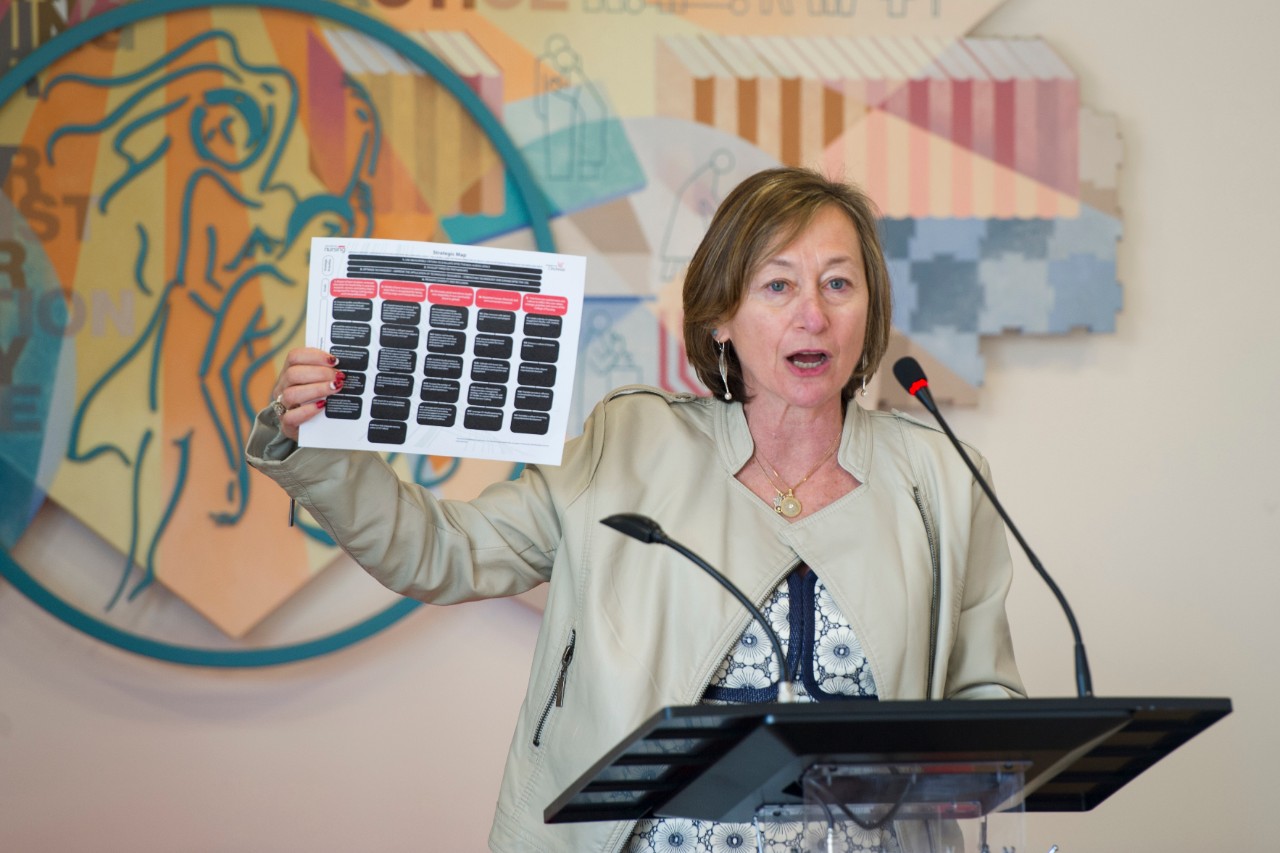
UC College of Nursing dean to serve on the Future of Nursing 2020-2030 committee
Selection of Greer Glazer underscores college motto of "UC Nurses, We See Leaders"
Greer Glazer, PhD, dean of the University of Cincinnati (UC) College of Nursing has been selected to serve on the Future of Nursing 2020-2030 Committee. The 15-member committee is made up of health care professionals from universities, health care systems and public health departments from across the United States.
Conducted under the guidance of the National Academies of Sciences, Engineering, and Medicine, the ad hoc committee will build on the lessons learned from the Future of Nursing Campaign for Action as well as the current state of science and technology to help guide their assessment of the capacity of the profession to meet the anticipated health and social care demands from 2020 to 2030.
“Since the first Future of Nursing report was released in 2010, we have seen great progress related to creating a more highly educated and diverse nursing workforce,” says Glazer. “Setting the vision for nursing into 2030 will require coordinated efforts from academia, practice and all key stakeholders. I’m honored to have been chosen to be part of the committee that will chart a path for the profession to help our nation create a culture of health, reduce health disparities and improve the health and well-being of the U.S. population in the 21st century.”
In 2009, the Robert Wood Johnson Foundation partnered with the Institute of Medicine to produce The Future of Nursing: Leading Change, Advancing Health, which set a vision for nursing in 2020. The authoring committee produced a set of recommendations for the field of nursing and provided a blueprint for improving nurse education. The goal was to ensure that nurses can practice to the full extent of their education and training, providing opportunities for nurses to assume leadership positions and improving data collection for policymaking and workforce planning.
“As we consider the charge of the new committee and work ahead to achieve the vision driving this agenda, it is clear that academic nursing has a large role to play,” says Ann Cary, chair of the board of directors of the American Association of College of Nursing (AACN). “According to data published by the Center to Champion Nursing’s Campaign for Action, the percentage of nurses in the workforce with a baccalaureate degree or higher is at an all-time high of 56%. AACN’s own data shows growing diversity in our student population where more than one-third of all students currently enrolled in baccalaureate, master’s, and doctoral programs come from groups under-represented in nursing.”
Cary says a variety of current and emerging issues influence the field of nursing, including ongoing health care reform and integration of new technologies, as well as patient-centered care and respect for the profession and its expertise. With nurses serving in a variety of community settings, the nursing profession is well-positioned to serve an important role in implementing the Robert Wood Johnson Foundation’s vision for a culture of health, according to Cary.
Related Stories
Before the medals: The science behind training for freezing mountain air
February 19, 2026
From freezing temperatures to thin mountain air, University of Cincinnati exercise physiologist Christopher Kotarsky, PhD, explained how cold and altitude impact Olympic performance in a recent WLWT-TV/Ch. 5 news report.
Blood Cancer Healing Center realizes vision of comprehensive care
February 19, 2026
With the opening of research laboratories and the UC Osher Wellness Suite and Learning Kitchen, the University of Cincinnati Cancer Center’s Blood Cancer Healing Center has brought its full mission to life as a comprehensive blood cancer hub.
Nursing innovation emerges as critical lever in healthcare transformation
February 18, 2026
Recognizing both the urgency and the opportunity, the University of Cincinnati (UC) College of Nursing is taking deliberate steps to position nurses at the forefront of healthcare transformation. It has created an Innovation Strategic Plan and established a dedicated Industry Advisory Board to forge the academic-industry partnerships essential to accelerating nurse-driven innovation.
